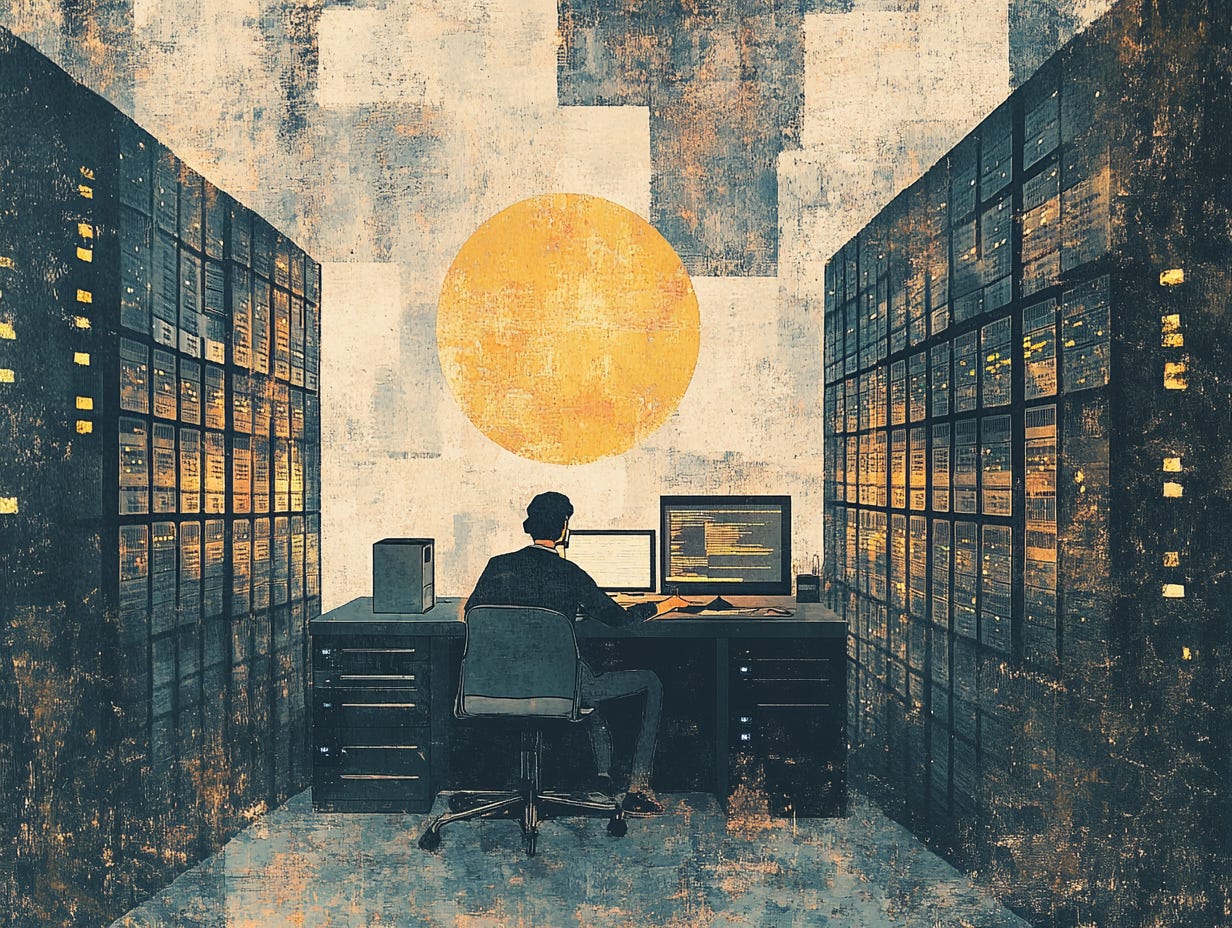The Inconvenient Truth About AI and Jobs
Why the popular 'AI won't take your job' quote fundamentally oversimplifies our future
Welcome to Unknown Arts, where builders navigate AI's new possibilities. Ready to explore uncharted territory? Join the journey!
There's a quote making the rounds lately that sounds reassuring:
"AI won't take your job, but someone using AI will."
It's catchy, clever, and fundamentally misleading.
The appeal is obvious—it suggests that AI is just another tool, that staying ahead is simply a matter of personal adaptation. Learn to use AI, the logic goes, and you'll be fine. But this comforting narrative misses a crucial reality: AI doesn't just enhance individual productivity; it has the potential to replace entire teams.
This isn't about one worker with AI replacing one without. It's about one person with AI potentially doing the work of five, ten, or even more people. As I wrote last week about the rise of "Software as a Workforce," we're moving beyond AI as just another productivity tool—it's becoming a scalable workforce that can amplify individual output to extraordinary levels. While this transformation brings incredible opportunities for innovation and growth, it also presents serious challenges we need to address thoughtfully.
The Challenge of Technological Unemployment
Markets are remarkably adaptive in the long run. History shows they tend to find balance, creating new opportunities as old ones disappear. But between disruption and adaptation lies what economists call "technological unemployment"—the gap between when technology displaces workers and when new opportunities emerge. This transition period isn't just a temporary inconvenience—it's a critical challenge that deserves our attention.
The rapid automation of roles that require minimal oversight could lead to sharp workforce reductions before our support systems or new opportunities are ready. While market forces will likely create new paths forward, the human cost of an unmanaged shift could be severe. In a world already grappling with wealth inequality and social unrest, a hands-off approach to this transition period risks deepening existing divisions and creating new ones.
When 'Just Learn New Skills' Isn't Enough
The challenge of career reinvention is something I know firsthand. When I entered tech over a decade ago, "learn to code" was the universal answer to job displacement. Having made that transition myself, I can tell you it's not that simple. I succeeded only because I had substantial advantages: a strong educational foundation and ongoing support from my family. For most people, re-skilling isn't just about determination—it's about access to resources, time to retrain, and whether the new roles align with their fundamental nature.
We've seen this pattern before in manufacturing, where one person with a machine replaced dozens of workers. The proposed solution was simple: "Learn new skills." Factory workers were told they could reskill and move into office jobs. But just as that transition proved far more complex than expected, today's career pivots aren't simple retraining exercises. Imagine telling an energetic salesperson who thrives on human connection to become a solitary coder, or asking a logic-loving accountant to switch to ambiguous creative work. These aren't just shifts in skills—they're attempts to reshape someone's basic way of working and being.
Now we're facing a parallel shift with AI, but in knowledge work instead of physical labor. While new opportunities are emerging, many require substantial reskilling or complete career reinvention. Just as factory automation reduced the number of workers needed, AI is poised to do the same for knowledge work. It's not just about learning new skills—it's about confronting the reality that fewer people might be needed to achieve the same or greater outputs.
Beyond Market Forces
While I believe deeply in AI's potential to enhance human capabilities, the "AI won't take your job" narrative implies that this transition will happen naturally through individual adaptation. History shows that major economic transitions tend to create significant social disruption unless actively managed. This AI revolution, with its potential to reshape entire categories of knowledge work, demands the same level of societal forethought and planning.
We need more than re-skilling programs. We need comprehensive policies to support displaced workers and create pathways to meaningful, new opportunities. Without active intervention and thoughtful policy approaches, we risk turning what could be a transformative opportunity into a crisis that deepens societal divides.
The real impact of AI on jobs isn't about who adopts the technology first—it's about how we prepare for a world where AI-driven productivity transforms the very nature of work. This isn't about resisting progress—it's about ensuring that progress serves everyone, not just a select few.
This transition is coming, ready or not. The question is whether we'll shape it intentionally or leave it to chance.
Until next time,
Patrick
Get some value from this piece? Share it with a friend.
Not subscribed yet? Join us!
Interested in working with me? Here’s my portfolio.





